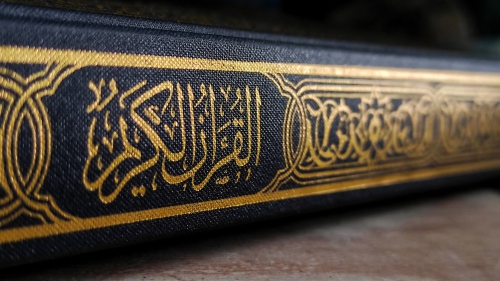Services
Highlights
Quran 30:43
News Around the World
WORLD AFFAIRS
CBSNEWS.COM
Pope Francis says of Ukraine, Gaza: “A negotiated peace is better than a war without end”
WORLD AFFAIRS
ALJAZEERA.COM
It’s time to declare Israel a rogue state
WORLD AFFAIRS
THEDAILYBEAST.COM
Frontline Ukrainians fear new aid from U.S. will be a disaster
WORLD AFFAIRS
COMMONDREAMS.ORG
Holocaust survivor tells student anti-genocide protesters: ‘Just keep doing it’
WORLD AFFAIRS
THECRADLE.CO
Saudi’s NEOM ’city in the desert’ project falters amid Gaza war
WORLD AFFAIRS
MIDDLEEASTEYE.NET
Pro-Palestinian students vow to ‘de-occupy’ Princeton after administration halts encampment
WORLD AFFAIRS
MIDDLEEASTMONITOR.COM
Israeli council considers issuing international arrest warrant for Netanyahu
WORLD AFFAIRS
MONDOWEISS.NET
Does the White House care about mass graves?
WORLD AFFAIRS
READCONTRA.COM
How Trump saved Ukraine aid
WORLD AFFAIRS
THEAMERICANCONSERVATIVE.COM
What $61 billion for Ukraine won’t do
WORLD AFFAIRS
KEVINBARRETT.SUBSTACK.COM
Military spending is destroying the world
WORLD AFFAIRS
THEINTERCEPT.COM
Chuck Schumer privately warns Pakistan: Don’t kill Imran Khan in prison






















































